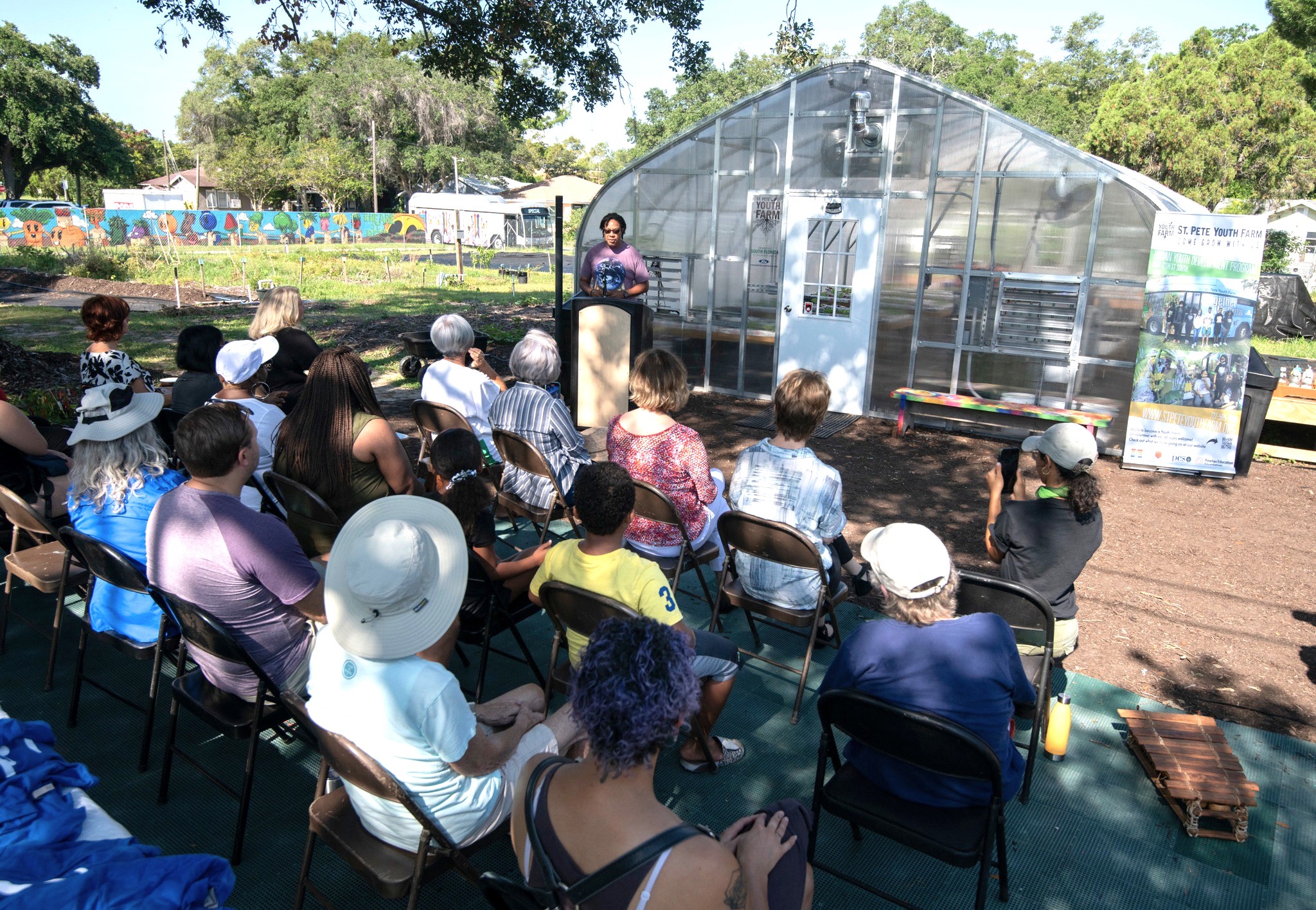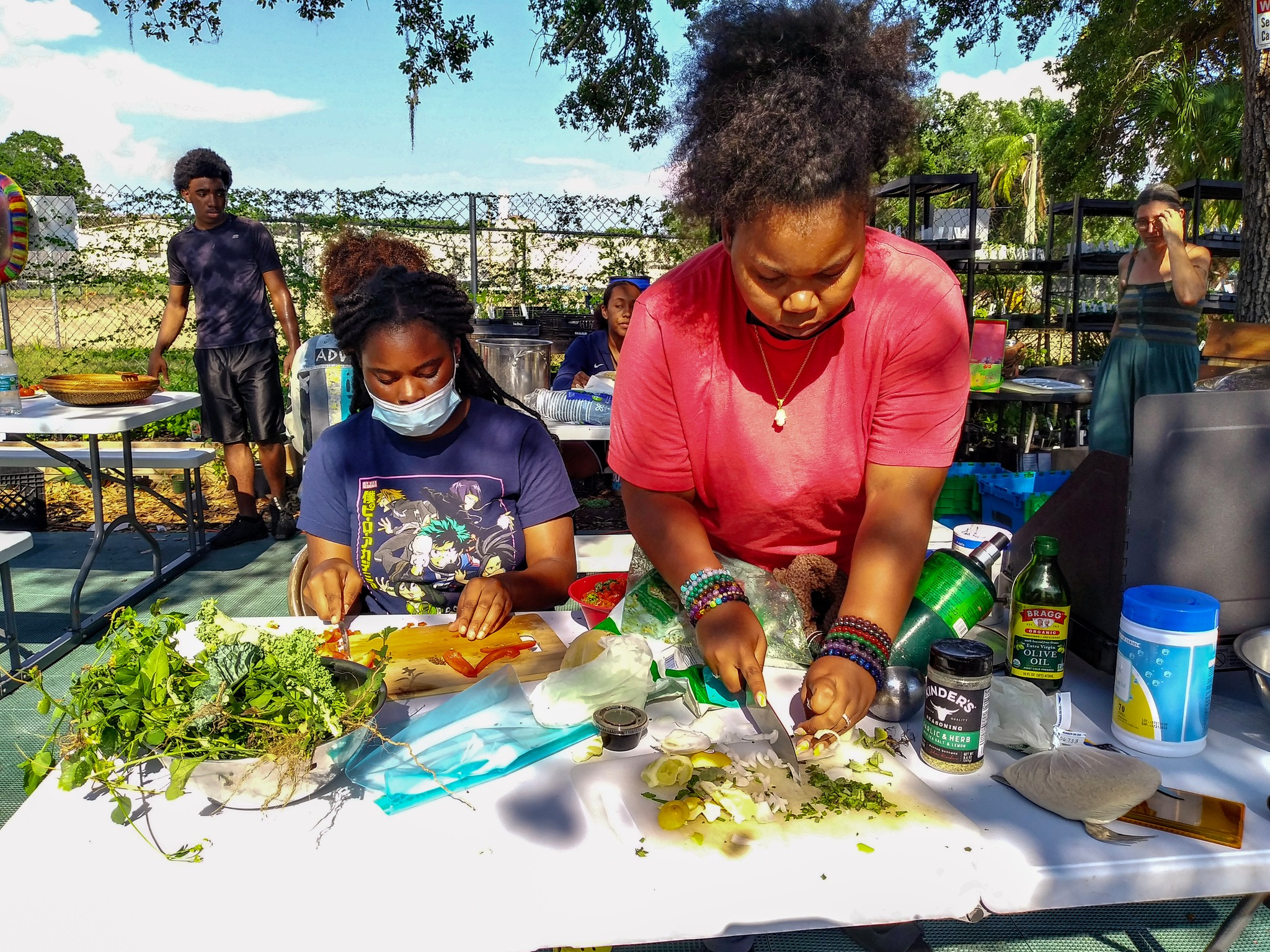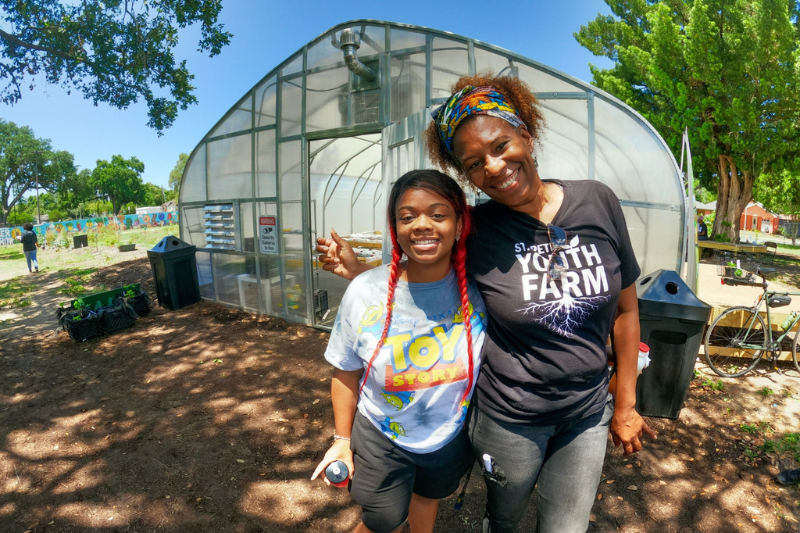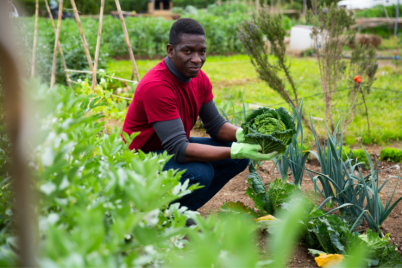The USF St. Petersburg campus and St. Pete Youth’s new greenhouse will enhance urban agriculture and help address food inequality in south St. Petersburg, where access to affordable and nutritious food is limited. Carla Bristol, collaboration manager at the youth farm, posing with one of her charges.
ST. PETERSBURG — The USF St. Petersburg campus and the St. Pete Youth Farm have unveiled a new greenhouse that will provide the community with fresh vegetables and fish while giving students the opportunity to learn about sustainable and innovative farming methods.
The new greenhouse will enhance urban agriculture and help address food inequality in south St. Petersburg, where access to affordable and nutritious food is limited. The structure will allow for both hydroponics and aquaponics farming and help college and high school students grow their knowledge of food production and build business skills.
“Through this greenhouse project, I am hopeful that we will be able to advance the practical learning of sustainable food production, especially in urban settings,” said Winnie Mulamba, sustainability planner at USF’s St. Petersburg campus. “That it will also provide easy access to affordable fresh and local vegetables to our community, promote creativity among our youth, and attract supportive partnerships from various organizations and businesses within the county and beyond.”

Joseph Dorsey, director of the food sustainability and security concentration at the USF Patel College of Sustainability, spoke to a small crowd at the St. Pete Youth Farm.
Located in the most densely populated county in the state, St. Petersburg has a limited amount of land available for food production and a higher percentage of people who identify as food insecure than the national average. According to the nonprofit organization Feeding Tampa Bay, more than 190,000 people in Pinellas County are food insecure.
The greenhouse is growing a variety of lettuces and peppers, which will complement the many fruits and vegetables grown outside at the youth farm. Blue and red tilapia are also being farm-raised within the greenhouse, with their waste used as fertilizer to grow some vegetables within.
Besides providing food, this urban agriculture initiative will teach students various farming techniques and entrepreneurship. A majority of the produce will be sold through a youth-driven social enterprise led by the St. Pete Youth Farm and USF’s St. Petersburg campus, with proceeds going back to support the greenhouse and farm. The remaining produce will be given to local charity centers.

Youth Farm participants learn to cook what they grow.
“We thought we were set up to just provide food, but it is way more than that. We are cultivating young people and cultivating food at the same time,” said Carla Bristol, collaboration manager at the St. Pete Youth Farm. “And this greenhouse will allow us to grow year-round, grow in a pest-free environment and teach young people about the variety of ways and technology used to grow for a greater breadth of knowledge and opportunity.”
The Fresh and Local Greenhouse was made possible by a $25,000 grant from the Ford Motor Company Fund in 2020. USF’s St. Petersburg campus was one of only seven higher education institutions nationwide to receive a grant through the Ford College Community Challenge that year. Additional funding from USF St. Petersburg campus alumni and internal grants supported the greenhouse and the hydroponics and aquaponics system within.
“The Ford Fund is very proud to have been able to support the Fresh and Local Greenhouse project through the Ford College Community Challenge grant. The opening of the greenhouse is a true testament to the hard work of the students and the local community,” said Mike Schmidt, director of Economic Mobility and Global Community Development at the Ford Motor Company Fund
The greenhouse unveiling coincided with the St. Pete Youth Farm’s Juneteenth celebration, which featured students and community members working the farm, African drumming, food, and other festivities.
The St. Pete Youth Farm is located outside the Enoch D. Davis Center in south St. Petersburg. It is an urban farm project and youth development program where young people develop essential life skills while learning about growing their own food, leadership and financial literacy.








